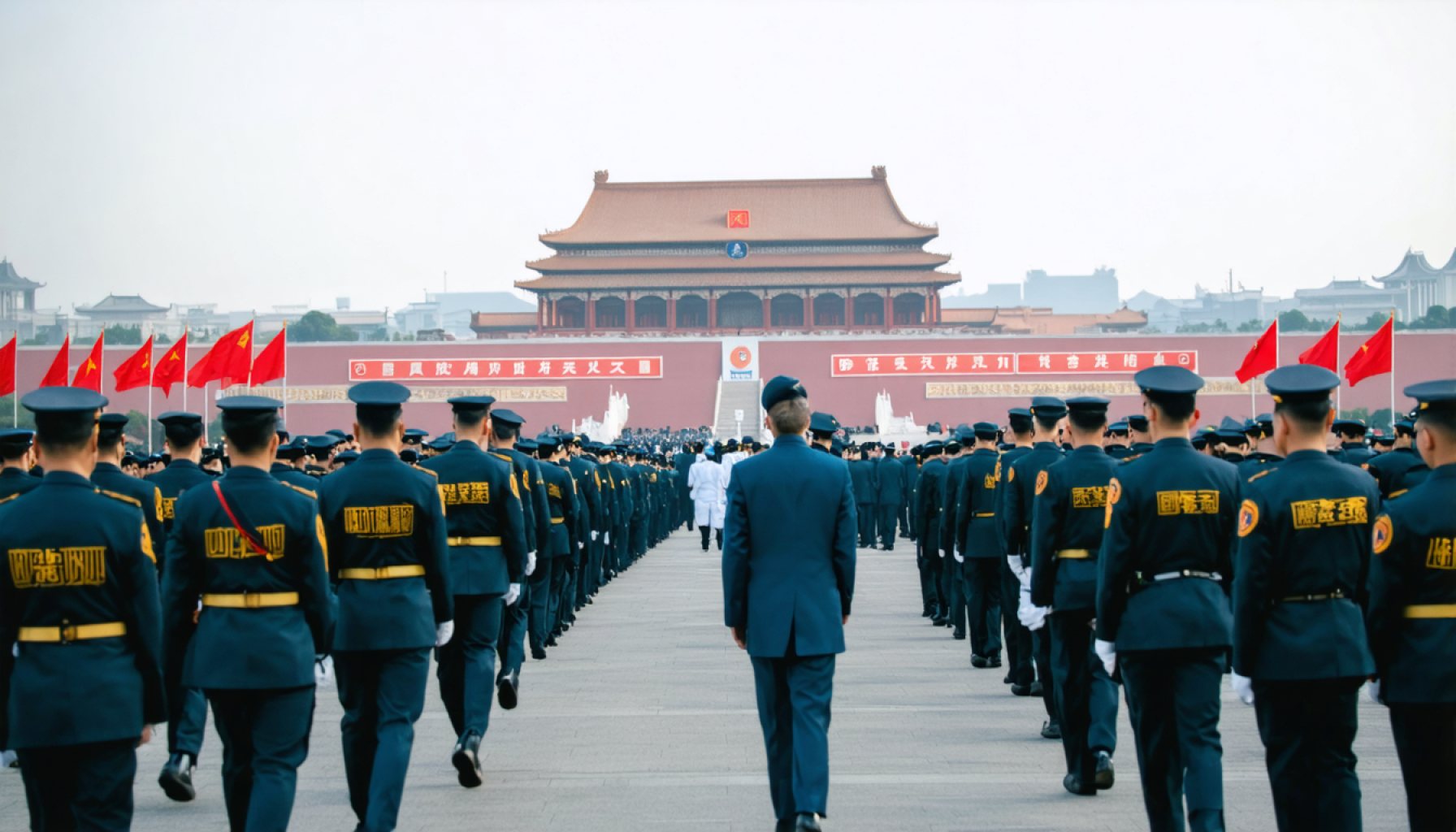- Jiang Chaoliang, a key figure in Chinese politics, faces an investigation by the Central Commission for Discipline Inspection.
- Jiang’s career includes serving as Governor of Jilin Province and Party Secretary of Hubei Province.
- He is currently under scrutiny for allegations of severe breaches of discipline and law.
- This investigation serves as a powerful statement about accountability, showing that no official is immune to examination.
- The unfolding situation emphasizes China’s commitment to combating corruption and promoting transparency in governance.
- The case illustrates the importance of ethical conduct as the foundation of credible leadership.
- Observers see this as a reminder that integrity in leadership is critical and that ethical failures can have wide-reaching consequences.
The political landscape in China trembles as the nation’s disciplinary watchdog, the Central Commission for Discipline Inspection, casts its scrutiny over Jiang Chaoliang, a prominent figure within the government. Known for his extensive tenure across various significant roles, Jiang’s journey in public service now takes a dramatic turn.
Born in August 1957, Jiang has been an influential presence, having navigated pivotal positions such as Governor of Jilin Province and Party Secretary of Hubei Province. His reputation, once synonymous with steadfast leadership, now stands shadowed by allegations of severe breaches of discipline and law.
Vivid images of sprawling rice paddies under the crisp sunrise of rural China belie the scrutiny faced by the Vice Chairman of the Agriculture and Rural Affairs Committee of the National People’s Congress Standing Committee. As the investigation unfolds, it sends ripples through the corridors of power, serving as a stark reminder of accountability. Those in positions of authority can find themselves under intense examination, irrespective of their stature or past achievements.
For observers within and beyond China’s borders, Jiang’s investigation highlights the ongoing battle against corruption and the relentless pursuit of transparency within the government. This unfolding narrative, dramatic and unyielding, underlines a crucial message: Ethical conduct remains the backbone of governance, and leaders, irrespective of their rank, are not beyond reproach. As this story develops, it underscores a rallying call for integrity in leadership, with potential ramifications resonating far and wide.
Chinese Power Plays: What Jiang Chaoliang’s Scrutiny Means for China’s Political Future
How-To Steps & Life Hacks: Navigating Political Changes
1. Stay Informed: Keep updated with trusted news sources like BBC News and Reuters for unbiased reporting on political developments.
2. Understand Policies: Research the Chinese Communist Party’s anti-corruption campaign to comprehend the motivation behind these investigations.
3. Network Strategically: Connect with experts in international relations and global policy to gain insights on how such changes may impact global geopolitics.
4. Leverage Analytics: Use data analytics tools to assess the potential impact of political changes on industries, especially those linked to agriculture, given Jiang’s latest role.
Real-World Use Cases
– Government Advisory Roles: Policy advisors can use this case to argue for stronger ethical training for public officials.
– Corporate Strategies: Corporates with interests in China may re-evaluate their risk management and compliance strategies.
– Educational Programs: Universities can integrate case studies on Jiang’s situation into public administration and political science curricula.
Market Forecasts & Industry Trends
The political turbulence in China could influence global markets, primarily impacting sectors like energy, agriculture, and tech. Analysts predict tighter regulations could slow down foreign investment, but also cleanse bureaucratic inefficiencies.
Reviews & Comparisons
Comparing Jiang’s case with previous high-profile investigations (e.g., Bo Xilai) provides insights into the CCP’s increasing emphasis on rooting out corruption. Both instances underscore the vulnerability of even high-ranking officials under Xi Jinping’s leadership.
Controversies & Limitations
– Controversies: Skepticism about potential ulterior motives behind investigations could complicate perceptions of fairness.
– Limitations: The opaque nature of the CCP’s disciplinary processes often means limited transparency and potential biases.
Insights & Predictions
Experts predict increased vigilance among Chinese officials, leading to a temporary slowdown in decision-making processes until the political climate stabilizes. Jiang’s case may influence other nations grappling with political corruption to reassess their governance protocols.
Pros & Cons Overview
Pros:
– Reinforces accountability
– Potentially reduces corruption in governance
Cons:
– Could create policy paralysis in provinces under scrutiny
– May discourage foreign investment due to perceived instability
Actionable Recommendations
– For Businesses: Strengthen compliance protocols and diversify investment portfolios to mitigate risks.
– For Researchers: Focus on exploring the short-term vs. long-term impacts of anti-corruption drives on economic policy.
– For Policy-Makers: Consider enhancing whistleblower protections to encourage ethical governance.
Readers interested in deeper analysis may explore topics like “political risk assessment” and the methodology of anti-corruption campaigns. Understanding the intricate dynamics at play can equip stakeholders with the foresight needed to navigate such political landscapes effectively.
